"Florencia" avis raris
Mary Ellyn Hutton
Posted: Jul 3, 2008 - 2:11:50 PM in
reviews_2008

Blue Morpho butterfly (morpho peleides)
|
Opera in Spanish has been a rare bird on the world stage.
Exactly why remains a mystery, says Daniel Catan, composer of “Florencia en el Amazonas” which will make its Cincinnati Opera debut at 7:30 p.m. July 10 and 12 at Music Hall.
“Opera flared in Italy, then in Germany and France in the 17th century. I’ve been trying to research why Spain turned out to be so different.
“The short answer is probably that religion had such a strong grip that it ended up controlling all kinds of explorations, including artistic explorations, and opera was probably one of them. Because Spain didn’t have it, opera never really took off in Latin America.”

Daniel Catan
|
Catan’s Spanish-language “Florencia” is a bit like the butterfly of Chaos Theory who flaps his wings in Brazil and causes a tornado in Texas.
An extreme analogy perhaps, but poetically satisfying because “Florencia” is about a woman searching for a butterfly hunter in Brazil and the opera was given its triumphant world premiere by Houston Grand Opera in 1996.
Co-produced by HGO, Los Angeles Opera and Seattle Opera, “Florencia” is the first opera in Spanish to be commissioned by major U.S. opera companies. It has traveled to Europe, Latin America and back, even in concert form at the Teatro Amazonas in Manaus, Florencia’s destination in the opera.
Catan, 58, a native of Mexico City, studied philosophy and music at Sussex University and the University of Southampton in England. He earned his Ph.D. at Princeton as a student of Milton Babbitt. One of his professors at Southampton was Benjamin Britten scholar Peter Evans. Britten, who revived indigenous English opera after a gap from baroque composer Henry Purcell to the 20th century, was a “great source of inspiration to me,” said Catan.
“He has done for the English language what I dream of doing for Spanish. When Britten was writing his first operas, the idea of writing opera in English seemed strange. People thought opera was something Italian, French or German.”
Catan had Colombian author Gabriel Garcia Marquez in mind when planning what would become “Florencia en el Amazonas.” The Nobel Prize-winning author, whose “100 Years of Solitude” and “Love in the Time of Cholera” were Oprah’s Book Club selections in 2004 and 2007, is an exponent of the Latin American genre called “magic realism.”
Catan defines magic realism as “the presentation of internal states of mind and emotional states externalized in such a way that the rest of the crowd can see it. For example, if a character is sad or upset, that leads into a day when it rains all the time. That way of presenting things is the stuff opera is about. Normally people don’t talk to themselves about their love. A character in opera stands on stage and tells you what he’s feeling.”
Catan sought a text by Marquez with a suitably operatic plot. “I didn’t quite find one that worked the way I needed, but I did find characters which I ended up borrowing and making a story around them.”
The “clearest one,” he said, is the Captain of the El Dorado, who is derived from opera-loving Don Leo XII in “Cholera” (however, he’s a bass in “Florencia” and doesn’t try to shatter glass with his high Cs).
Marquez agreed to supervise the project, but delegated the actual writing to his pupil Marcela Fuentes-Berain. “We would go and see him and read out the stuff we had and he would comment and offer alternatives and suggestions,” said Catan. “As we proceeded, we found our characters detaching themselves and becoming more like cousins of the originals.”
“Florencia” is rich with magic realism (a misnomer, said Catan, because it isn’t about magic, but the characters’ inner lives). Riolobo in his various guises furthers the action and maintains continuity. Pink rain follows the turbulent card game. Florencia’s mystical union with Cristobal recalls the incident in “100 Years of Solitude” where Remedios the Beauty floats up to heaven while hanging bed sheets out to dry.
The idea of a trip down the Amazon was suggested by “Cholera,” which ends with a riverboat journey where the elderly Florentino asks the captain to raise the cholera flag so he and Fermina, the woman he waited “51 years, 9 months and 4 days” for, can sail the river “forever.”
Like “Cholera” (made into a 2007 Mike Newell film), “Florencia” is concerned less with the actual arrival than “the transformation of the characters as they go through the journey,” said Catan.
To get the real flavor of the Amazon, he and the HGO production crew made their own trip down the river. “We observed very carefully the way life feels in the Amazon. We picked up a lot details, the costumes, design of the boat, even characters.” Riolobo is modeled on their guide, “a local fellow who knew the jungle like the palm of his hand.”
The music of “Florencia” is lush and tonal, with arias, duets and a chorus. You can hear Puccini, Debussy, Ravel, Stravinsky, Britten, Berg, Villa-Lobos and Richard Strauss, whose operas Catan adores.
“The orchestral music tries to capture the flow of the river,” he said. “That’s why it moves at such high speed all the time. It’s a metaphor for the river of life.”
Catan relied heavily on wind instruments because they are “less homogenous” than strings. “I have a lot of winds going up and down. As they move, their timbre (color) changes. I combined winds, harp and marimba. With those three qualities, I felt like I was capturing the shimmering (of the water) and the wooden aspect of the jungle, the trees and the earthy sound.”
The percussion-rich orchestra includes djembe, a versatile African drum where “you can get both a very deep sound and a very high slap.” Also local hand drums, heard in recurring rhythmic patches whenever a character is thinking about Manaus – “a sort of swaying music very much from that part of the world,” said Catan.
The opera, to be sung in Spanish with English supertitles, is scored for 43 players, including double winds, brass, percussion, harp, piano and a small string orchestra. The Cincinnati Symphony Orchestra performs for all Cincinnati Opera productions.
Six of the seven cast members, all but bass Burak Bilgili as the Captain, are making their Cincinnati Opera debuts. Singing Florencia will be soprano Alexandra Coku, with baritone Nmon Ford as Riolobo, tenor Arturo Cjacon-Cruz as Arcadio, soprano Shana Blake Hill as Rosalba, mezzo-soprano Emily Golden as Paula and baritone Carlos Archuleta as Alvaro. Steven Mercurio will conduct, with stage direction by Andrew Morton.
Come at 6:30 p.m., one hour before curtain, for "Opera Insights," a pre-performance discussion of "Florencia" by Catan and Cincinnati Opera artistic director Evans Mirageas.
Tickets are $25-$145 at the Cincinnati Opera box office in Music Hall, 1241 Elm St., by phone at (513) 241-2742, or order online at www.cincinnatiopera.org
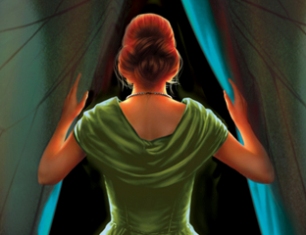
poster for "Florencia en el Amazonas" Cincinnati Opera
|
Synopsis of "Florencia en el Amazonas"
Music by Daniel Catan. Libretto by Marcela Fuentes-Berain
Two acts, 100 minutes
Early 1900s, Leticia, Colombia.
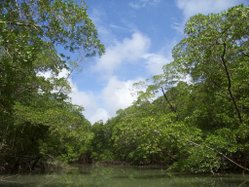
Amazon River
|
The river boat El Dorado is preparing to steam down the Amazon to Manaus, Brazil where famed soprano Florencia Grimaldi is scheduled to sing.
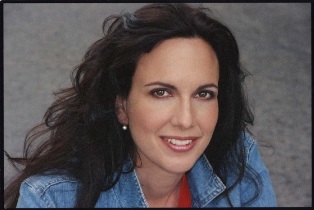
soprano Alexandra Coku (Florencia)
|
Boarding are Paula and Alvaro, a middle-aged couple seeking to rekindle their love (mezzo-soprano, baritone), Rosalba, a journalist who wishes to write Grimaldi’s biography (soprano) and Florencia herself, traveling incognito. The diva is returning to Manaus after 20 years to seek Cristobal, a butterfly hunter whose love first inspired her to sing. Riolobo, a magical figure who can take different forms (baritone), helps her aboard.
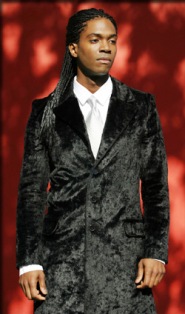
baritone Nmon Ford (Riolobo)
|
Florencia sings of Cristobal. The Captain (bass) and his nephew Arcadio (tenor) discuss Arcadio’s dissatisfaction with river life. Rosalba accidentally drops her notes on Grimaldi into the river.Arcadio recovers them. Paula and Alvaro exchange insults over iguana and wine.

iguana
|
Florencia learns from the Captain that Cristobal vanished in the jungle years ago. A card game pits Paula and Alvaro against Rosalba and Arcadio, who sense they are falling in love. Pink rain begins falling. A violent storm ensues. Alvaro falls overboard trying to clear logs from their path. Riolobo implores the gods to still the tempest. Arcadio takes the wheel. The boat runs aground.
Florencia sings distraughtly of Cristobal. Rosalba and Arcadio reject love because it brings unhappiness.Paula sings of how much she loved Alvaro. Alvaro reappears saying Paula’s song restored him to life. Florencia assures Rosalba that she can replace her ruined notebook and that love will make her a great writer. Paula recognizes Florencia. Rosalba and Arcadio accept their love. Manaus is sighted. Riolobo sounds the cholera alarm. No one can go ashore. Florencia addresses Cristobal in a final aria in which she is transfigured into a butterfly, achieving mystical union with him.
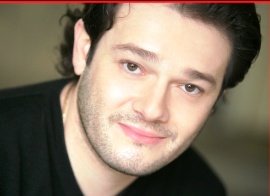
tenor Arturo Chacon-Cruz (Arcadio)
|

soprano Shana Blake Hill (Rosalba)
|

mezzo-soprano Emily Golden (Paula)
|
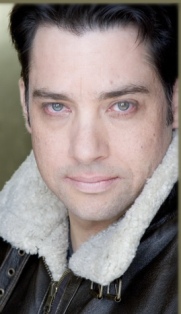
baritone Carlos Archuleta (Alvaro)
|










